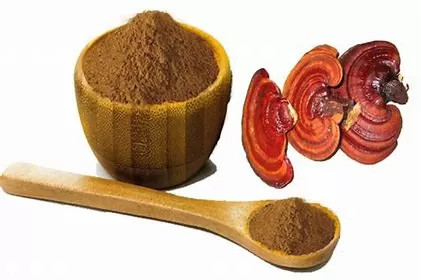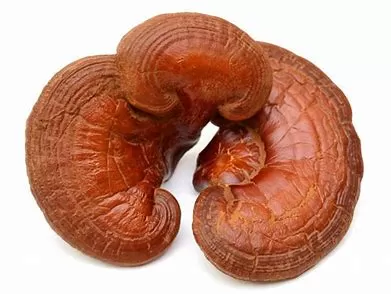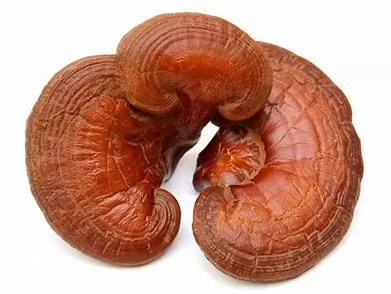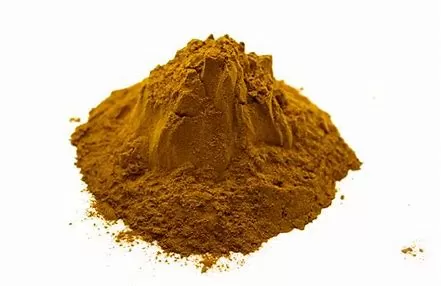- 0086-571-85302990
- sales@greenskybio.com
Does reishi balance hormones?
2025-04-02
The reishi mushroom, also known as Ganoderma lucidum or Lingzhi, has been a cornerstone of traditional Chinese medicine for thousands of years. Renowned for its therapeutic properties, reishi is often associated with longevity, immune enhancement, and vitality. As interest in natural remedies grows, there is increasing curiosity about the role of reishi mushrooms in balancing hormones. Hormonal balance is crucial for overall health, affecting everything from metabolism and mood to reproductive health and energy levels. This article examines the evidence supporting reishi mushrooms’ role in hormonal balance and their broader health implications.
Understanding Hormonal Balance
Hormones are chemical messengers produced by endocrine glands such as the pituitary, thyroid, adrenals, and gonads. These messengers regulate various bodily functions, including growth, metabolism, reproduction, and mood. Maintaining hormonal balance is vital for optimal health. Any disruption, such as excess or deficiency, can lead to a range of health issues, including fatigue, stress, anxiety, weight gain, and sleep disturbances.
The Nutritional Profile of Reishi Mushrooms
Reishi mushrooms are rich in bioactive compounds, including polysaccharides, triterpenoids, peptidoglycans, and sterols. These components contribute to the mushroom's medicinal properties, offering anti-inflammatory, antioxidant, and immune-modulating effects. The triterpenoids, in particular, have garnered attention for their potential role in hormone regulation due to their adaptogenic properties, which may help the body cope with stress and maintain balance.
Potential Benefits of Reishi Mushrooms in Hormonal Balance
1. Stress Reduction and Adrenal Health: Reishi mushrooms are adaptogens, substances that help the body adapt to stress and exert a normalizing effect upon bodily processes. Chronic stress leads to prolonged cortisol release from the adrenal glands, which can disrupt hormonal balance and lead to conditions such as adrenal fatigue. Reishi’s adaptogenic properties may support adrenal function and mediate the stress response, thereby helping to balance cortisol levels and promote a sense of calm and resilience.
2. Immune System Support: Hormones and the immune system are intricately linked, with each influencing the other’s function. Reishi is renowned for its ability to modulate the immune system, either stimulating it in cases of infection or dampening an overactive immune response. By supporting a balanced immune system, reishi may indirectly contribute to hormonal equilibrium, as certain hormonal imbalances are related to immune system dysfunction.
3. Regulation of Blood Sugar Levels: Blood sugar imbalances can affect hormone levels, particularly insulin, which plays a crucial role in metabolism and energy regulation. Reishi mushrooms have been studied for their potential to stabilize blood sugar levels by enhancing insulin sensitivity and reducing insulin resistance. Balanced blood sugar levels can prevent hormonal disturbances that lead to metabolic syndromes.
4. Reproductive Hormone Support: Although direct evidence linking reishi to the regulation of reproductive hormones such as estrogen and testosterone is limited, its general health-enhancing properties, including stress reduction and immune support, may positively impact reproductive hormone balance. Stress is known to impact reproductive hormones, thereby affecting fertility and menstrual cycles.
5. Sleep and Melatonin Regulation: Reishi mushrooms are often used to promote relaxation and improve sleep quality. Adequate sleep is crucial for hormonal balance, as it influences the production of melatonin, growth hormone, and stress hormones. By enhancing sleep quality and duration, reishi may contribute to overall hormonal health.
Scientific Evidence and Limitations
While reishi mushrooms have been widely studied for their health benefits, specific research on hormonal balance in humans is still emerging. Most studies focus on reishi’s adaptogenic and immune-modulating properties, with the implication that these indirect effects support hormonal health. Clinical studies on the direct impact of reishi on specific hormones are limited, and more research is needed to establish causal relationships and elucidate mechanisms of action.
Considerations and Usage
As with any supplement, it is essential to use reishi mushrooms responsibly. Individuals interested in using reishi for hormonal balance should consult healthcare professionals, especially those with existing health conditions or those taking medication. Reishi supplements are available in various forms, including capsules, powders, and teas. It is crucial to choose high-quality, reputable brands to ensure purity and potency.
Conclusion
Reishi mushrooms offer promising potential in supporting hormonal balance through their adaptogenic, immune-modulating, and overall health-promoting properties. While scientific evidence is still evolving, traditional usage and emerging research suggest that reishi may help mediate stress responses, improve sleep quality, and enhance immune function, all of which contribute to maintaining hormonal equilibrium. As interest in natural and holistic approaches to health continues to grow, reishi mushrooms may become a valuable addition to strategies aiming to support hormonal health. However, it is essential to approach these supplements with informed caution and professional guidance to ensure safe and effective use.
- ▶ Hesperidin
- ▶ citrus bioflavonoids
- ▶ plant extract
- ▶ lycopene
- ▶ Diosmin
- ▶ Grape seed extract
- ▶ Sea buckthorn Juice Powder
- ▶ Beetroot powder
- ▶ Hops Extract
- ▶ Artichoke Extract
- ▶ Reishi mushroom extract
- ▶ Astaxanthin
- ▶ Green Tea Extract
- ▶ Curcumin Extract
- ▶ Horse Chestnut Extract
- ▶ Other Problems
- ▶ Boswellia Serrata Extract
- ▶ Resveratrol Extract
- ▶ Marigold Extract
- ▶ Grape Leaf Extract
- ▶ blog3
- ▶ blog4
- ▶ blog5
-
Daily Use of Reishi: Safety and Benefits
2025-04-02
-
Does Reishi Mushroom Make You Look Younger?
2025-04-02
-
Does Reishi Mushroom Extract Help You Sleep?
2025-04-02
-
What is Reishi Mushroom Extract Used For?
2025-04-02
-
Scutellaria Extract
2025-04-02
-
Buckthorn bark extract
2025-04-02
-
White Willow Bark Extract
2025-04-02
-
Troxerutin
2025-04-02
-
Tongkat Ali Extract Powder
2025-04-02
-
Lemon Balm Extract
2025-04-02
-
Tongkat Ali Extract
2025-04-02
-
Cactus Extract
2025-04-02
-
Hawthorn powder
2025-04-02
-
Marigold Extract
2025-04-02






























